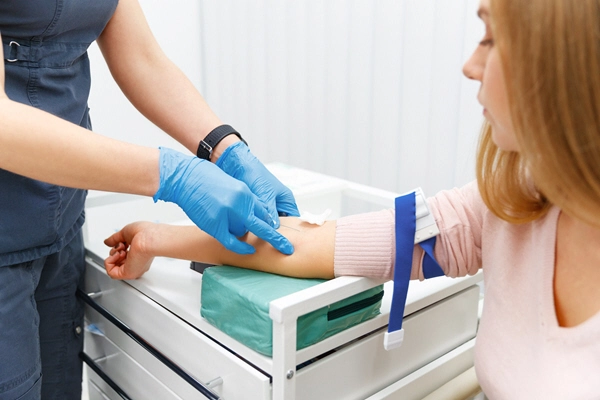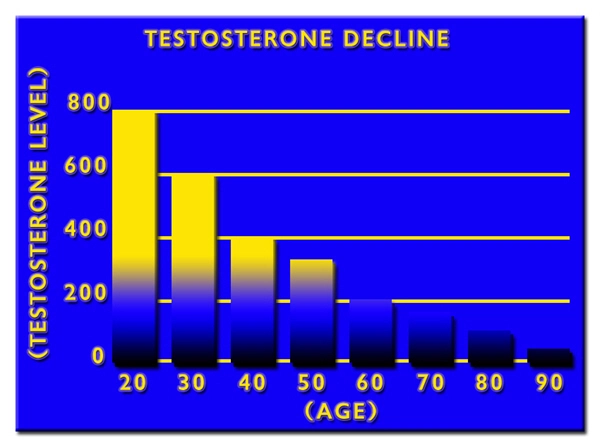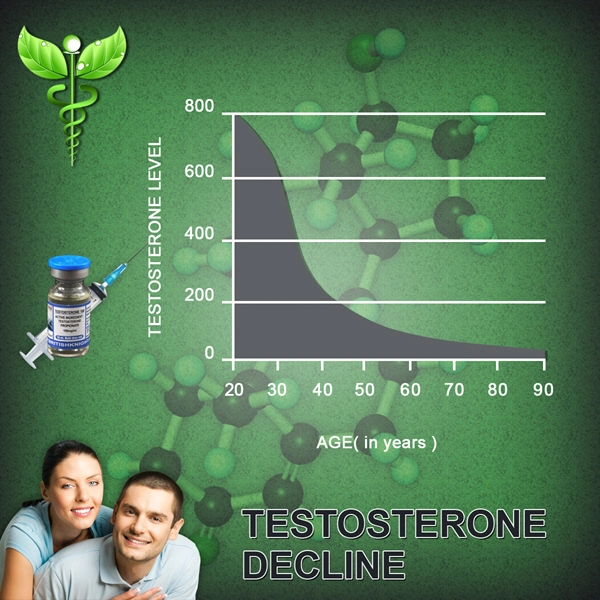Introduction to Low Testosterone
Low testosterone, medically known as hypogonadism, is a condition increasingly recognized among American males. It is characterized by a deficiency in the production of testosterone, a crucial hormone responsible for male physical characteristics and overall well-being. As men age, testosterone levels naturally decline, but various factors such as obesity, chronic diseases, and lifestyle choices can accelerate this process.
The Role of Testosterone in Body Composition
Testosterone plays a pivotal role in regulating body composition. It influences muscle mass, fat distribution, and bone density. Adequate levels of testosterone are essential for maintaining lean muscle mass and reducing fat accumulation, particularly visceral fat, which is linked to metabolic disorders.
Challenges of Low Testosterone on Muscle Mass
One of the primary challenges faced by American males with low testosterone is the loss of muscle mass. Testosterone promotes protein synthesis and muscle growth, and its deficiency can lead to sarcopenia, the age-related loss of muscle tissue. This not only affects physical strength and functionality but also contributes to a lower metabolic rate, making weight management more difficult.
Impact on Fat Distribution and Obesity
Low testosterone levels are associated with an increased risk of obesity, particularly central obesity. Men with hypogonadism often experience a shift in fat distribution, with more fat accumulating around the abdomen. This type of fat, known as visceral fat, is metabolically active and increases the risk of developing conditions such as type 2 diabetes, cardiovascular diseases, and metabolic syndrome.
Bone Health and Low Testosterone
Another significant challenge is the impact of low testosterone on bone health. Testosterone is vital for maintaining bone density, and its deficiency can lead to osteoporosis, a condition characterized by weakened bones and an increased risk of fractures. This is particularly concerning for older American males, who are already at a higher risk for bone-related issues.
Psychological and Emotional Effects
Beyond physical health, low testosterone can also affect psychological well-being. Men may experience symptoms such as fatigue, depression, and reduced libido, which can further exacerbate the challenges of managing body composition. The psychological toll of these symptoms can lead to a vicious cycle of reduced physical activity and poor dietary choices, further complicating the management of body composition.
Strategies for Managing Low Testosterone
Addressing low testosterone and its impact on body composition requires a multifaceted approach. Hormone replacement therapy (HRT) can be an effective treatment for restoring testosterone levels, but it should be carefully managed under medical supervision. Additionally, lifestyle modifications such as regular exercise, a balanced diet, and weight management are crucial for improving body composition and overall health.
Exercise and Physical Activity
Engaging in regular physical activity, particularly resistance training, can help counteract the muscle loss associated with low testosterone. Exercise not only promotes muscle growth but also improves insulin sensitivity and reduces visceral fat, contributing to better overall body composition.
Dietary Considerations
A diet rich in protein, healthy fats, and essential nutrients supports muscle maintenance and overall health. American males should focus on consuming lean proteins, fruits, vegetables, and whole grains while limiting processed foods and sugars, which can contribute to obesity and metabolic issues.
Conclusion: Navigating the Challenges
Low testosterone presents significant challenges for American males in managing their body composition. By understanding the multifaceted impacts of this condition and adopting a comprehensive approach to treatment and lifestyle management, men can improve their physical health and quality of life. Awareness and proactive management are key to navigating the challenges posed by low testosterone and maintaining optimal body composition.

- Environmental Toxins Linked to Declining Testosterone Levels in American Men [Last Updated On: March 4th, 2025] [Originally Added On: March 4th, 2025]
- Economic Burden of Low Testosterone on American Healthcare System [Last Updated On: March 17th, 2025] [Originally Added On: March 17th, 2025]
- Vitamin D's Role in Managing Low Testosterone in American Men: Insights and Strategies [Last Updated On: March 17th, 2025] [Originally Added On: March 17th, 2025]
- Low Testosterone in American Males: Symptoms, Causes, and Management Strategies [Last Updated On: March 18th, 2025] [Originally Added On: March 18th, 2025]
- Low Testosterone and Mood Disorders in American Men: Causes, Symptoms, and Treatments [Last Updated On: March 18th, 2025] [Originally Added On: March 18th, 2025]
- Chronic Illnesses and Their Impact on Testosterone Levels in American Males [Last Updated On: March 18th, 2025] [Originally Added On: March 18th, 2025]
- Low Testosterone's Impact on Muscle Health in American Males: Causes, Effects, and Treatments [Last Updated On: March 19th, 2025] [Originally Added On: March 19th, 2025]
- Low Testosterone in American Men: Symptoms, Diagnosis, and Treatment Options [Last Updated On: March 19th, 2025] [Originally Added On: March 19th, 2025]
- Alcohol Consumption's Impact on Testosterone Levels in American Men [Last Updated On: March 20th, 2025] [Originally Added On: March 20th, 2025]
- Low Testosterone and Diabetes in American Males: Impacts and Management Strategies [Last Updated On: March 20th, 2025] [Originally Added On: March 20th, 2025]
- Low Testosterone in Aging Men: Symptoms, Impacts, and Management Strategies [Last Updated On: March 21st, 2025] [Originally Added On: March 21st, 2025]
- Low Testosterone's Impact on Cognitive Function in American Men: Memory, Attention, and Executive Skills [Last Updated On: March 21st, 2025] [Originally Added On: March 21st, 2025]
- Smoking's Impact on Testosterone: A Critical Health Concern for American Men [Last Updated On: March 21st, 2025] [Originally Added On: March 21st, 2025]
- Low Testosterone's Impact on Skin Health in American Men: Causes and Management [Last Updated On: March 21st, 2025] [Originally Added On: March 21st, 2025]
- Shift Work's Impact on Testosterone Levels in American Men: Risks and Mitigation Strategies [Last Updated On: March 22nd, 2025] [Originally Added On: March 22nd, 2025]
- Zinc's Role in Boosting Testosterone Levels in American Men: A Comprehensive Overview [Last Updated On: March 23rd, 2025] [Originally Added On: March 23rd, 2025]
- Low Testosterone and Depression in American Males: Links, Implications, and Therapy [Last Updated On: March 23rd, 2025] [Originally Added On: March 23rd, 2025]
- Low Testosterone and Hair Loss: Impact and Management in American Males [Last Updated On: March 23rd, 2025] [Originally Added On: March 23rd, 2025]
- Boosting Testosterone in American Men Through Tailored Physical Activity [Last Updated On: March 23rd, 2025] [Originally Added On: March 23rd, 2025]
- Medications Impacting Testosterone Levels: Insights for American Men's Hormonal Health [Last Updated On: March 23rd, 2025] [Originally Added On: March 23rd, 2025]
- Weight Loss: A Key Strategy for Boosting Testosterone in American Males [Last Updated On: March 23rd, 2025] [Originally Added On: March 23rd, 2025]
- Herbal Supplements: A Natural Approach to Treating Low Testosterone in American Men [Last Updated On: March 23rd, 2025] [Originally Added On: March 23rd, 2025]
- Low Testosterone Linked to Osteoporosis Risk in American Men: Prevention and Treatment Insights [Last Updated On: March 24th, 2025] [Originally Added On: March 24th, 2025]
- Low Testosterone in American Males: Impact on Libido and Treatment Options [Last Updated On: March 24th, 2025] [Originally Added On: March 24th, 2025]
- Dietary Strategies to Boost Testosterone in American Men: Key Nutrients and Foods [Last Updated On: March 24th, 2025] [Originally Added On: March 24th, 2025]
- Genetic Factors in Low Testosterone Among American Males: Research and Implications [Last Updated On: March 24th, 2025] [Originally Added On: March 24th, 2025]
- Nutritional Deficiencies and Testosterone: Insights for American Males [Last Updated On: March 24th, 2025] [Originally Added On: March 24th, 2025]
- Low Testosterone and Prostate Health: Understanding Risks and Management Strategies [Last Updated On: March 24th, 2025] [Originally Added On: March 24th, 2025]
- Environmental Estrogens: Impact on Testosterone Levels in American Males [Last Updated On: March 25th, 2025] [Originally Added On: March 25th, 2025]
- Low Testosterone and Metabolic Syndrome: Impacts and Interventions in American Men [Last Updated On: March 25th, 2025] [Originally Added On: March 25th, 2025]
- Low Testosterone: Symptoms, Diagnosis, and Impact on Men's Quality of Life [Last Updated On: March 25th, 2025] [Originally Added On: March 25th, 2025]
- Low Testosterone and Anemia: Exploring the Link and Treatment in American Men [Last Updated On: March 25th, 2025] [Originally Added On: March 25th, 2025]
- Low Testosterone's Impact on Emotional Health in American Men: Insights and Solutions [Last Updated On: March 25th, 2025] [Originally Added On: March 25th, 2025]
- Chronic Inflammation's Impact on Testosterone Levels in American Males [Last Updated On: March 26th, 2025] [Originally Added On: March 26th, 2025]
- Chronic Stress Impact on Testosterone Levels in American Men: Management Strategies [Last Updated On: March 26th, 2025] [Originally Added On: March 26th, 2025]
- Low Testosterone's Impact on Immune Function in American Males: Insights and Interventions [Last Updated On: March 26th, 2025] [Originally Added On: March 26th, 2025]
- Low Testosterone and Thyroid Disorders: Exploring the Link in American Men [Last Updated On: March 26th, 2025] [Originally Added On: March 26th, 2025]
- Liver Health's Crucial Role in Managing Testosterone Levels in American Males [Last Updated On: March 27th, 2025] [Originally Added On: March 27th, 2025]
- Low Testosterone Linked to Insulin Resistance in American Men: Impacts and Strategies [Last Updated On: March 27th, 2025] [Originally Added On: March 27th, 2025]
- Low Testosterone Linked to Increased Heart Disease Risk in American Men [Last Updated On: March 27th, 2025] [Originally Added On: March 27th, 2025]
- Low Testosterone and Skin Health: Impacts and Management in American Men [Last Updated On: March 27th, 2025] [Originally Added On: March 27th, 2025]
- Hormonal Imbalance and Low Testosterone in American Males: Causes, Symptoms, and Treatments [Last Updated On: March 27th, 2025] [Originally Added On: March 27th, 2025]
- Sleep Apnea's Impact on Testosterone Levels in American Males: Causes and Solutions [Last Updated On: March 27th, 2025] [Originally Added On: March 27th, 2025]
- Chronic Pain's Impact on Testosterone Levels in American Males: A Comprehensive Analysis [Last Updated On: March 28th, 2025] [Originally Added On: March 28th, 2025]
- Managing Low Testosterone in Aging Men: Symptoms, Diagnosis, and Treatment Options [Last Updated On: March 28th, 2025] [Originally Added On: March 28th, 2025]
- Dental Health Impacts Testosterone Levels in American Males: Insights and Recommendations [Last Updated On: March 28th, 2025] [Originally Added On: March 28th, 2025]
- Low Testosterone Linked to Higher Autoimmune Disease Risk in American Men [Last Updated On: March 28th, 2025] [Originally Added On: March 28th, 2025]
- Low Testosterone Linked to Neurological Risks in American Men: Implications and Interventions [Last Updated On: March 28th, 2025] [Originally Added On: March 28th, 2025]
- Respiratory Health's Impact on Testosterone Levels in American Males: COPD and Asthma Effects [Last Updated On: March 29th, 2025] [Originally Added On: March 29th, 2025]
- Low Testosterone Linked to Increased Kidney Disease Risk in American Men [Last Updated On: March 30th, 2025] [Originally Added On: March 30th, 2025]
- Gut Health and Testosterone: A Vital Connection for American Men's Wellness [Last Updated On: March 30th, 2025] [Originally Added On: March 30th, 2025]
- Low Testosterone's Impact on Musculoskeletal Health in American Men: Risks and Interventions [Last Updated On: April 1st, 2025] [Originally Added On: April 1st, 2025]
- ENT Health's Crucial Role in Optimizing Testosterone Levels in American Males [Last Updated On: April 1st, 2025] [Originally Added On: April 1st, 2025]
- Low Testosterone Linked to Increased Eye Disorder Risk in American Men [Last Updated On: April 2nd, 2025] [Originally Added On: April 2nd, 2025]
- Reproductive Health's Impact on Testosterone Levels in American Men [Last Updated On: April 4th, 2025] [Originally Added On: April 4th, 2025]
- Low Testosterone and Hematological Risks in American Men: Insights and Management [Last Updated On: April 7th, 2025] [Originally Added On: April 7th, 2025]
- Understanding Low Testosterone: Causes, Diagnosis, and Management Strategies [Last Updated On: April 7th, 2025] [Originally Added On: April 7th, 2025]
- Low Testosterone's Impact on Urological Health in American Men: Risks and Management [Last Updated On: April 7th, 2025] [Originally Added On: April 7th, 2025]
- Low Testosterone Levels Linked to Higher Infection Risk in American Men [Last Updated On: April 8th, 2025] [Originally Added On: April 8th, 2025]
- Low Testosterone Linked to Psychiatric Disorders in American Men: Implications and Management [Last Updated On: April 9th, 2025] [Originally Added On: April 9th, 2025]
- Immune System's Role in Low Testosterone Among American Males: A Holistic View [Last Updated On: April 10th, 2025] [Originally Added On: April 10th, 2025]
- Managing Rheumatological Health to Address Low Testosterone in American Males [Last Updated On: April 10th, 2025] [Originally Added On: April 10th, 2025]
- Cancer's Impact on Testosterone Levels in American Men: Causes, Effects, and Management [Last Updated On: April 10th, 2025] [Originally Added On: April 10th, 2025]
- Testosterone Levels and Wound Healing in American Males: Impacts and Implications [Last Updated On: April 12th, 2025] [Originally Added On: April 12th, 2025]
- Trauma's Impact on Testosterone Levels in American Males: Physiological and Psychological Insights [Last Updated On: April 13th, 2025] [Originally Added On: April 13th, 2025]
- Low Testosterone's Impact on Surgical Outcomes in American Men: Risks and Recommendations [Last Updated On: April 13th, 2025] [Originally Added On: April 13th, 2025]
- Low Testosterone and Vascular Health: Impacts and Management in American Men [Last Updated On: April 13th, 2025] [Originally Added On: April 13th, 2025]
- Managing Low Testosterone: The Crucial Role of Anesthetic Health in American Males [Last Updated On: April 15th, 2025] [Originally Added On: April 15th, 2025]
- Low Testosterone Linked to Increased Allergic Reactions in American Men: Health Implications [Last Updated On: April 15th, 2025] [Originally Added On: April 15th, 2025]
- Neonatal Health's Impact on Adult Testosterone Levels in American Males [Last Updated On: April 16th, 2025] [Originally Added On: April 16th, 2025]
- Low Testosterone in Men Linked to Increased Pediatric Disorder Risk in Offspring [Last Updated On: April 17th, 2025] [Originally Added On: April 17th, 2025]
- Low Testosterone in American Men Linked to Congenital Disorders: Implications and Management [Last Updated On: April 18th, 2025] [Originally Added On: April 18th, 2025]
- Prenatal Health's Impact on Testosterone Levels in American Males [Last Updated On: April 19th, 2025] [Originally Added On: April 19th, 2025]
- Low Testosterone and Genetic Disorders: Risks and Implications for American Men [Last Updated On: April 19th, 2025] [Originally Added On: April 19th, 2025]
- Testosterone's Role in Male Health: Development, Genetics, and Lifestyle Impacts [Last Updated On: April 19th, 2025] [Originally Added On: April 19th, 2025]
- Occupational Health's Impact on Testosterone Levels in American Males [Last Updated On: April 20th, 2025] [Originally Added On: April 20th, 2025]
- Low Testosterone's Impact on Geriatric Health in American Men: Detection and Management [Last Updated On: April 20th, 2025] [Originally Added On: April 20th, 2025]



List of USA state clinics - click a flag below for blood testing clinics.
Word Count: 578



















































